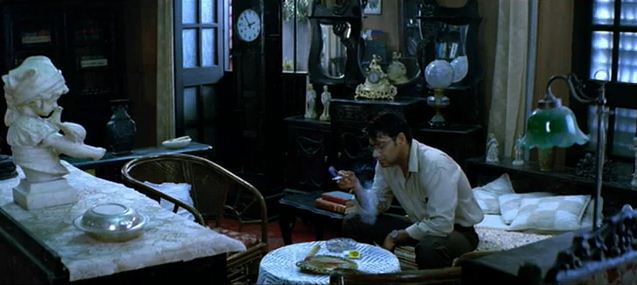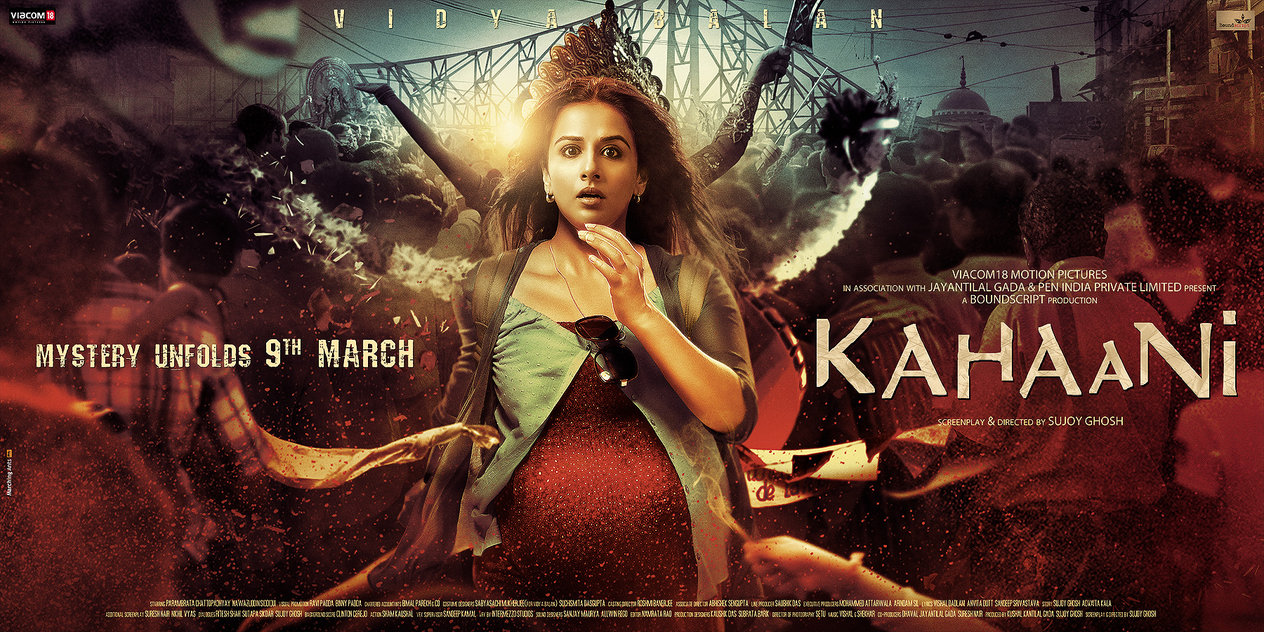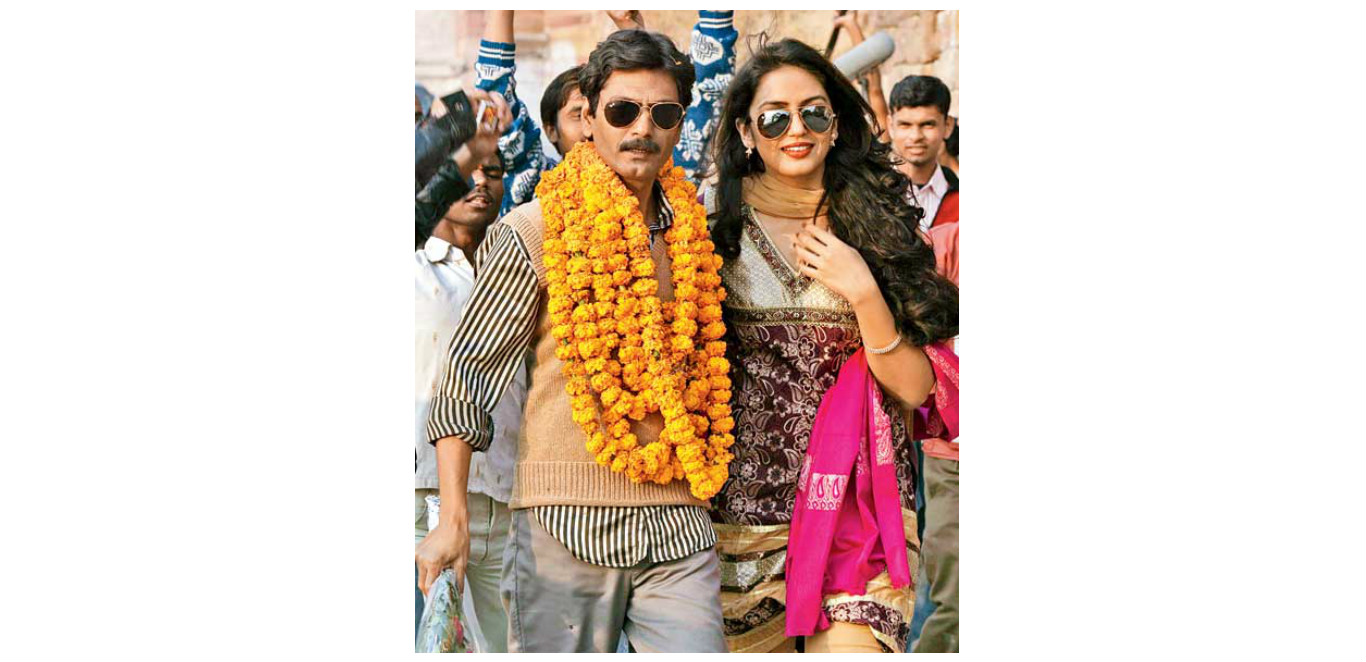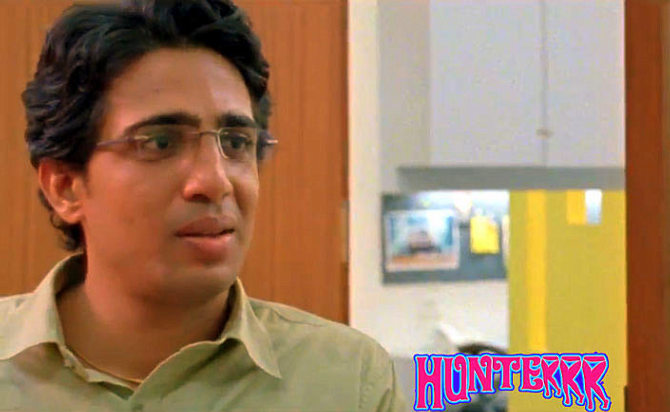Raincoat
Raincoat : Movie Review
5 stars out of 5 (Masterpiece)
Director : Rituparno Ghosh
Hindi (English subtitles available) , 2004
There are few joys that are as fulfilling as a full complement of time spent in the company of that special someone, and there are few sorrows that are as deep as that of lost love. Raincoat, exquisitely directed by Rituparno Ghosh, covers the remains of a romance in the primary narrative and etches a failed love story in flashback. Pic opens its softly sensual and intimate folds with a sequence lushly pregnant with nostalgia, sultry with passing tropical fields and ultimately soaring with poignant emotion. It comprises Shubha Mudgal’s splendidly ripe vocals in the song ’Mathura Nagarpathi", inspired wording of the film’s credits, a spelling out of assistant directors like no other, and idyllic images of the countryside as a train chugs its way towards the city .The folk song’s lyrics are used with beautiful irony to inform the journey from hometown to the city of Kolkata by the story’s male protagonist Manoj (essayed by Ajay Devgan). He is a young man down and beaten on his luck. The jute mill he was working in has shut down ; he is now broke and has hit upon the plan to travel to the city where his friends from college may help in pooling together money for a new business venture.
Most mainstream Indian films, which are made to cater to a mass audience largely possessing poor taste in cinema, care two hoots to capture the atmosphere and micro-climate of the country they are set in. In Raincoat however, you feel the need for the eponymous material. Monsoons have set in, the air is short on brightness and heat, and regardless of whether the camera trains its sights outdoors or indoors, there is a touch of dampness. This then is the natural stage that becomes ripe for the cultivation of a long orgiastic session of speculative reflection and quietly aching regret.
In Calcutta, Manoj stays with his long-time pal Alok and his sensitive, caring wife Sheela who gently warms up the dysphoric milieu. Alok heads a television 'serial' production house, but is ostensibly not capable himself of coughing up the forty thousand rupees ($1000) that Manoj needs. Nevertheless, he strives to bolster Manoj’s mind and charts out the latter’s cash-collection trips in the city. Manoj, after visiting some of his old pals and garnering twelve thousand rupees, decides amidst the pouring meridian rain and gloom, to visit Neeru (Aishwarya Rai). Neeru is his erstwhile lover who left him years ago after a long futile wait for him to become financially dependable. Neeru welcomes him nonchalantly, with none of the awkwardness of an ex-lover. She informs Manoj that marriage has unwittingly given her a jet-setting husband who’s rarely home. She lives in a house filled with ’antique’ furniture and is now alone at home thanks to servants who are loafing away somewhere.
Manoj notes her cosy existence with a neutral countenance, and they both speak fluidly of their comfortables lives, studiously avoiding bringing up the past, their sultry banter sprinkled with jokes, and suggestions for overcoming each other's little foibles - the kind that make the lives of well-off people appear so endearingly flawed. Lunchtime looms, and since the darned servants have absconded without even preparing a decent lunch for them, Neeru elects to step out and bring back food from a restaurant. A middle-aged male visitor then gains entry into the house. This segment involutingly blooms as the most deliciously dramatic part of the entire movie - fusing humour hard reality taunts regret insight wisdom brave-heart gesture and the wonderful sobriety of real life all into one single encounter. The end of this episode sets the stage for the song "Piya Tora Kaisa Abhimaan".
Sung with sonorous magnificence by Shubha Mudgal, it informs the sequence in which Manoj surveys the spoils of time. There is a plunging sigh of poignancy and and an operatic grandeur in the lamentation flowing from Mudgal’s vocals. This is interwoven with the deeply wistful breeze of poetry rendered in the august voice of Gulzar. If Mudgal’s rendition of this song is heavy gold, then Hariharan’s is filigreed silver. His version of the same song opens with pearl drops of santoor, a lovely overture of flute and waves of silken voice. A brief part of it is employed in inspired fashion to provide mystically poignant echoes to a scene set in a transcendently composed Diwali night. On that night where both lights and unbearable ache sparkle, Neeru informs her ailing lover that her marriage to someone else has been arranged. She loves him, but she loves herself more, at least at that stage.
The performances here are as much about the extraction of full potential as they are about excellent casting. Alok’s wife, Sheela, is embodied by young Mouli Ganguly with a masterpiece performance of tender restraint and born nuance. Comely, with a softly dulcet voice and gentle manner that goes on to reveal a wise, sometimes sly comprehension of human nature, Sheela understands Manoj’s melancholia and tends to him with motherly concern. Manoj’s friend, Alok, is played by Sameer Dharmadhikari as an urbane no-nonsense man who still nurtures concern for his hapless old pal. Annu Kapoor’s cameo is an absolute hoot, and a testament to his under-feted acting chops. Kapoor had aspired to be a surgeon in early life, and observing his precisely great performances from 'Raincoat' to 'Jolly LLB2 ' hints that he is a man for whom expertise in his chosen field would not remain a difficult task for long. Speaking in articulate, Sanskrit-infused Hindi, and emoting with a confident yet restrained flourish, he brings not only dramatic punch but also a trenchant perspective to the narrative.
As for Ajay Devgan, one has to wonder at the eclecticism of performances that can be channelled from his unassuming physiognomy. Devgan is spinelessly terrific here - if a performance can be called miserably magnificent, this is it. Devgan's Manoj flawlessly personifies a woe-begone young man. Unemployed, with the resultant misery fraying his nerves, and yet to find a good partner after the early loss of a loved one, Manoj seems rich only with sorrow. In front of Neeru, he manages to appear relaxed and unruffled, in a valiant bid to keep up appearances. And yet, beneath all that pusillanimity, there may still shine a stoutness of heart that redeems and almost absolves.
Aishwarya Rai, when left to her own devices, either turns in forgettable or horrible or forgettably horrible acts, or makes a fool of herself in real-life TV appearances, like she did in the 2010 interview in 'Koffee with Karan'. But under keen directorial tutelage, like that bestowed by the likes of Sanjay Leela Bansali, Aishwarya fashions radiant moving portrayals that match her physical beauty and strengthen the movie’s impact. Here by the guidance of Rituparno Ghosh, she brings to languor-laden life the character of a beautiful young woman subsisting in a gloomy house. Slender, clad in a maroon blouse and draped in a pink sari, her face still has that pristine fairness. But the stray tresses hanging loose at her temple, and dark circles under the eyes suggest not the best of tidings. They speak more of a tiredness borne out of long disappointment, rather than the silhouette of boredom.The natural currents of sauciness and spikes of perky banter in Aishwarya’s temperament are well brought out here (as in the scene wherein she imitates the assortments of schemers who’d like to trespass into her drawing room and gawk at it). But that is outweighed by a pall of dysphoria that swims just under her seemingly complacent demeanor. This is one of the most slyly complex and tenderly moving performaces of Aishwarya's career.
Raincoat’s script template is borrowed from a popular short story by a famous overseas writer. The movie wallows in a mood beyond despair, and watches its characters as they conceive words and mannerisms that are offered like how wreaths of blossoms are used to cover a grave. And it slowly spins a tapestry wherein its protagonists ultimately oblige themselves to pull off a victory, inspite of the fact that the bigger story is one of defeat. At one point, at a juncture isolated from their direct interaction, Neeru wistfully states " If God had wished so, then I’d have been married to you, isn’t it...?" That reflection merits a wry smile, in light of her own choice earlier in the story, and at the beguiling interplay between personal determinism and fate’s decree. Raincoat succeeds wonderfully in evoking the impossible regret of unfulfilled love. And it pays exquisite tribute to the need to be civil, even kind to those who were once a part of us, and may still be.
UPN
UPNWORLD welcomes your comments.










0 COMMENTS
WRITE COMMENT